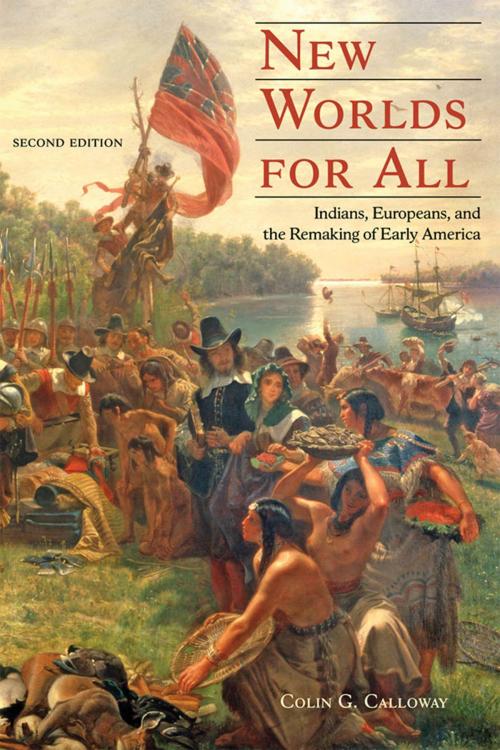New Worlds for All
Indians, Europeans, and the Remaking of Early America
Nonfiction, History, Americas, Native American, United States| Author: | Colin G. Calloway | ISBN: | 9781421411217 |
| Publisher: | Johns Hopkins University Press | Publication: | October 1, 2013 |
| Imprint: | Language: | English |
| Author: | Colin G. Calloway |
| ISBN: | 9781421411217 |
| Publisher: | Johns Hopkins University Press |
| Publication: | October 1, 2013 |
| Imprint: | |
| Language: | English |
Although many Americans consider the establishment of the colonies as the birth of this country, in fact early America existed long before the arrival of the Europeans. From coast to coast, Native Americans had created enduring cultures, and the subsequent European invasion remade much of the land and society. In New Worlds for All, Colin G. Calloway explores the unique and vibrant new cultures that Indians and Europeans forged together in early America. The journey toward this hybrid society kept Europeans' and Indians' lives tightly entwined: living, working, worshiping, traveling, and trading together—as well as fearing, avoiding, despising, and killing one another. In some areas, settlers lived in Indian towns, eating Indian food. In the Mohawk Valley of New York, Europeans tattooed their faces; Indians drank tea. A unique American identity emerged.
The second edition of New Worlds for All incorporates fifteen years of additional scholarship on Indian-European relations, such as the role of gender, Indian slavery, relationships with African Americans, and new understandings of frontier society.
Although many Americans consider the establishment of the colonies as the birth of this country, in fact early America existed long before the arrival of the Europeans. From coast to coast, Native Americans had created enduring cultures, and the subsequent European invasion remade much of the land and society. In New Worlds for All, Colin G. Calloway explores the unique and vibrant new cultures that Indians and Europeans forged together in early America. The journey toward this hybrid society kept Europeans' and Indians' lives tightly entwined: living, working, worshiping, traveling, and trading together—as well as fearing, avoiding, despising, and killing one another. In some areas, settlers lived in Indian towns, eating Indian food. In the Mohawk Valley of New York, Europeans tattooed their faces; Indians drank tea. A unique American identity emerged.
The second edition of New Worlds for All incorporates fifteen years of additional scholarship on Indian-European relations, such as the role of gender, Indian slavery, relationships with African Americans, and new understandings of frontier society.















